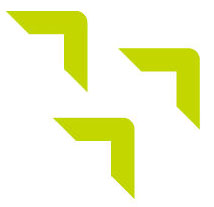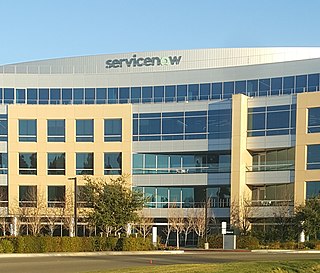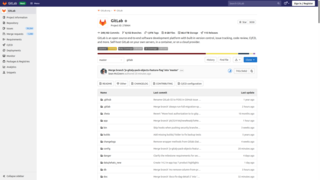Sophos Group plc is a British based security software and hardware company. Sophos develops products for communication endpoint, encryption, network security, email security, mobile security and unified threat management. Sophos is primarily focused on providing security software to 1- to 5,000-seat organizations. While not a primary focus, Sophos also protects home users, through free and paid antivirus solutions intended to demonstrate product functionality. It was listed on the London Stock Exchange until it was acquired by Thoma Bravo in February 2020.
QuickTransit was a cross-platform virtualization program developed by Transitive Corporation. It allowed software compiled for one specific processor and operating system combination to be executed on a different processor and/or operating system architecture without source code or binary changes.

Rosetta Stone Language Learning is proprietary, computer-assisted language learning (CALL) software published by Rosetta Stone Inc, part of the IXL Learning family of products. The software uses images, text, and sound to teach words and grammar by spaced repetition, without translation. Rosetta Stone calls its approach Dynamic Immersion.
Dennis Bennie is an entrepreneur and early-stage investor based in Toronto, Canada. He co-founded Mission Electronics in 1979; co-founded Aviva Software in 1982; co-founded Delrina in 1988; raised two venture funds under XDL Group and is currently a mentor, advisor and angel investor to early-stage technology companies.
Cambium Networks is a wireless infrastructure provider that offers fixed wireless and Wi-Fi to broadband service providers and enterprises to provide Internet access. An American telecommunications infrastructure company, it provides wireless technology, including Enterprise WiFi, switching solutions, Internet of Things, and fixed wireless broadband and Wi-Fi for enterprises. Publicly traded on the NASDAQ stock exchange, it spun out of Motorola in October 2011.

Alcatel–Lucent S.A. was a multinational telecommunications equipment company, headquartered in Boulogne-Billancourt, France. It was formed in 2006 by the merger of France-based Alcatel and U.S.-based Lucent, the latter being a successor of AT&T's Western Electric and Bell Labs.
Kurzweil Education is an American-based company that provides educational technology.

Workday, Inc., is an American on‑demand (cloud-based) financial management, human capital management and Student information system software vendor. Workday was founded by David Duffield, founder and former CEO of ERP company PeopleSoft, along with former PeopleSoft chief strategist Aneel Bhusri, following Oracle's acquisition of PeopleSoft in 2005.

Fit Brains is mobile/online software marketed for brain training. Vivity Labs, which originally produced the games, was founded in 2008 in Vancouver, British Columbia by Michael Cole, a game developer, Paul Nussbaum, a neuropsychologist, and Mark Baxter, who had worked in the brain training field for the prior seven years. The platform was started mostly with private investors' money and was also supported by Telefilm Canada and National Research Council Industrial Research Assistance Program (NRC-IRAP).
Cambium Learning Group is an American technology company which creates computer software and hardware products serving students ranging from pre-kindergarten to adult; and enabling educators who help them learn. As of December 2018, it is owned by Veritas Capital, a New York-based private equity firm.

SumTotal Systems, Inc. is a software company based in Gainesville, Florida, that provides human resource management software and services to private and public sector organizations. The company uses multiple cloud-based channels, including software as a service (SaaS), hosted subscription, and premises-based licensure.

ServiceNow is an American software company based in Santa Clara, California that develops a cloud computing platform to help companies manage digital workflows for enterprise operations. Founded in 2003 by Fred Luddy, ServiceNow is listed on the New York Stock Exchange and is a constituent of the Russell 1000 Index and S&P 500 Index. In 2018, Forbes magazine named it number one on its list of the world's most innovative companies.
Cyient is an Indian multinational technology company that is focused on engineering, manufacturing, data analytics, and networks and operations. Infotech Enterprises Ltd. was established in 1991 in Hyderabad. Infotech Enterprises was re-branded as Cyient in 2014 and was featured among the top 30 outsourcing companies in the world in 2018.
Blackboard Inc. was an American educational technology company with corporate headquarters in Reston, VA. It was known for Blackboard Learn, a learning management system. It merged with Anthology in late 2021, with the future name of the combined company not announced yet.

GitLab Inc. is an open-core company that operates GitLab, a DevOps software package which can develop, secure, and operate software. The open source software project was created by Ukrainian developer Dmitriy Zaporozhets and Dutch developer Sytse Sijbrandij. In 2018, GitLab Inc. was considered the first partly-Ukrainian unicorn.
Pluralsight, LLC is an American privately held online education company that offers a variety of video training courses for software developers, IT administrators, and creative professionals through its website. Founded in 2004 by Aaron Skonnard, Keith Brown, Fritz Onion, and Bill Williams, the company has its headquarters in Farmington, Utah. As of July 2018, it uses more than 1,400 subject-matter experts as authors, and offers more than 7,000 courses in its catalog. Since first moving its courses online in 2007, the company has expanded, developing a full enterprise platform, and adding skills assessment modules.

Skillsoft is an American educational technology company that produces learning management system software and content.

MINDBODY, Inc. is a San Luis Obispo, California-based software-as-a-service company that provides cloud-based online scheduling and other business management software for the wellness services industry. Founded in 2001, the company services over 58,000 health and wellness businesses with about 35 million consumers in over 130 countries and territories. Since October 2021, the company has owned ClassPass. It is majority owned by Vista Equity Partners, a private equity firm.
Procore Technologies is an American construction management software as a service company founded in 2002, with headquarters in Carpinteria, California.
Zeta Global Holdings Corp. is a data-driven marketing technology company which was founded in 2007. Zeta offers companies a suite of multichannel marketing tools focused on creating, maintaining, and monetizing customer relationships.









